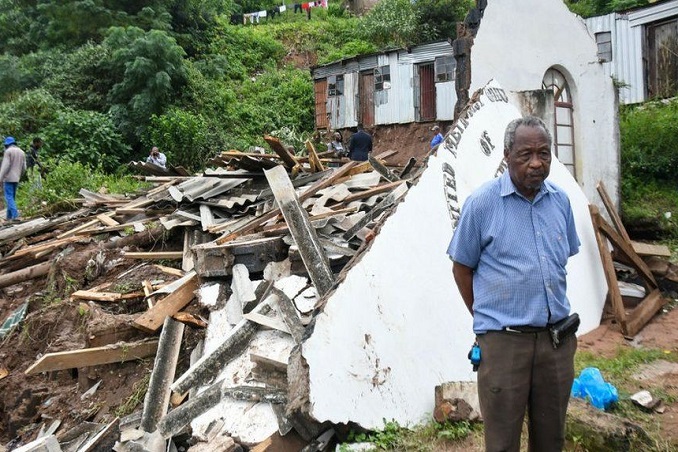Last updated on April 20th, 2022 at 06:28 am
Last week disastrous floods hit the KwaZulu-Natal province of South Africa killing more than 400 people. To help in ongoing rescue and relief operations, the South African army has announced to send in more than 10,000 troops as search continues for 63 people who are missing.
The government of South Africa has declared nationwide state of disaster as reports come in of many people being swept away by mudslides and swollen rivers amid the catastrophic floods in province.
Addressing the nation on Monday, South African President Cyril Ramaphosa announced that government would be taking series of measures that will be aimed to help the people who have been affected by the floods and for rebuilding work. The current floods are said to be the most severe floods to have hit KwaZulu-Natal province.
The premier of KwaZulu-Natal province, Sihle Zikalala has said that at least 4000 homes have been destroyed in floods and more than 8000 have been damaged. The maximum impact has been in the coastal city of Durban and nearby areas.
Related Posts
Amanda Acheampong, a woman in Durban, said the bodies of four of her relatives were recovered near a river bank, and that six relatives were still missing. “The neighbours’ house collapsed first, which then resulted in our family home collapsing and washing everyone into the river. Four bodies were discovered along the riverbank – my sister and her three grandkids. It’s horrible,” Acheampong was quoted by News24 website of South Africa. “We’re still looking for the remaining six. We are hopeful they might still be alive, but at this stage it doesn’t look good,” she added.
“When the mudslide happened she was washed away. We don’t know where she is. We have tried to get police and their dogs but till today they have not come,” another woman Lethiwe Sibiya said about her niece who has still not been found.
South African National Defence Force (SANDF) has said that its troops would intensify search and rescue operations, along with assisting in providing aid to victims. “Army plumbers and electricians would also work in areas that have been without water and electricity for a week,” it added.

